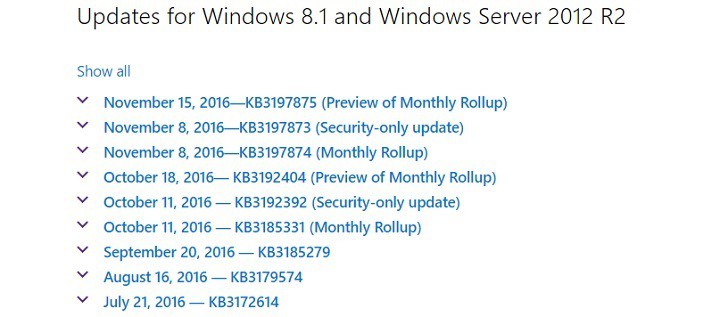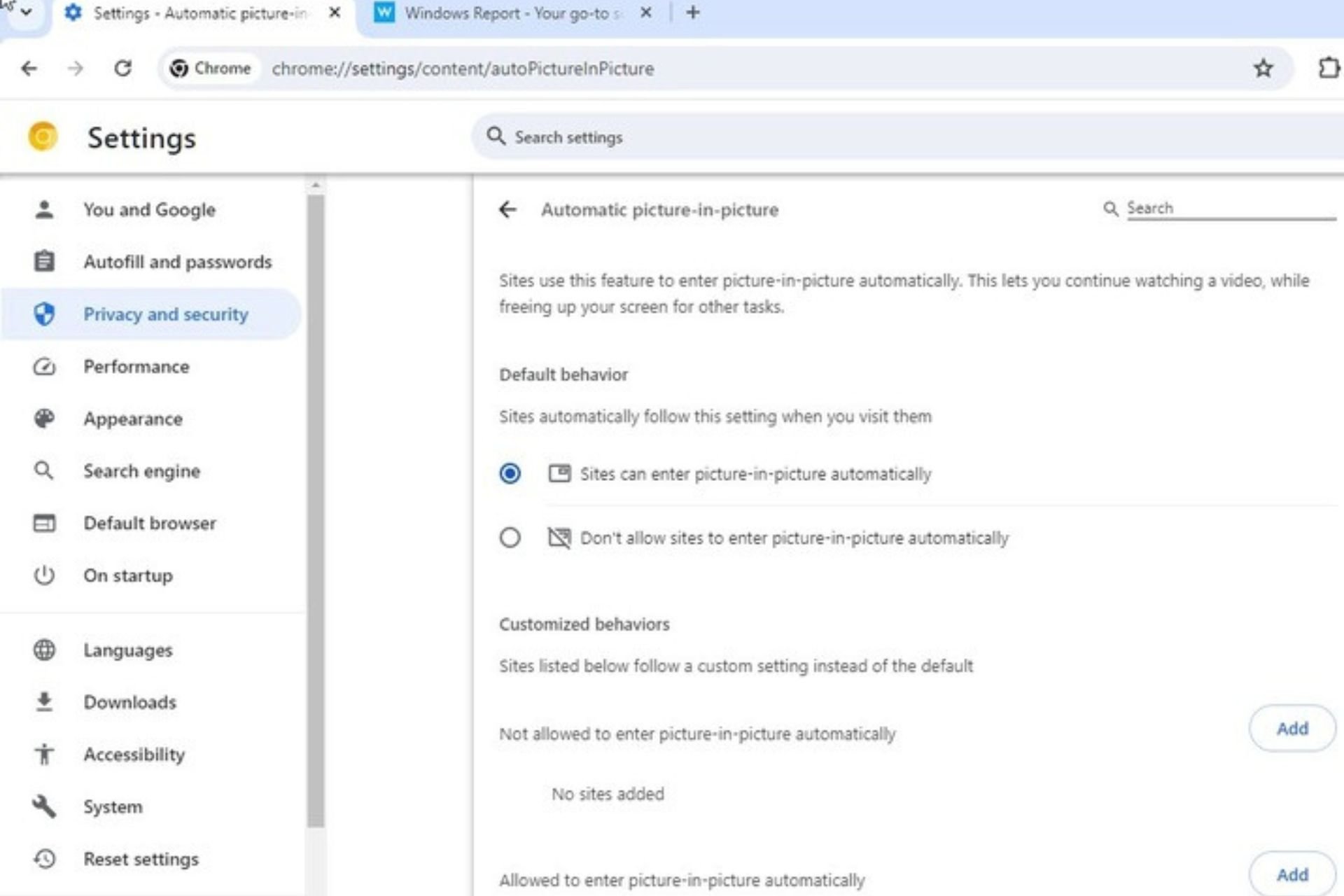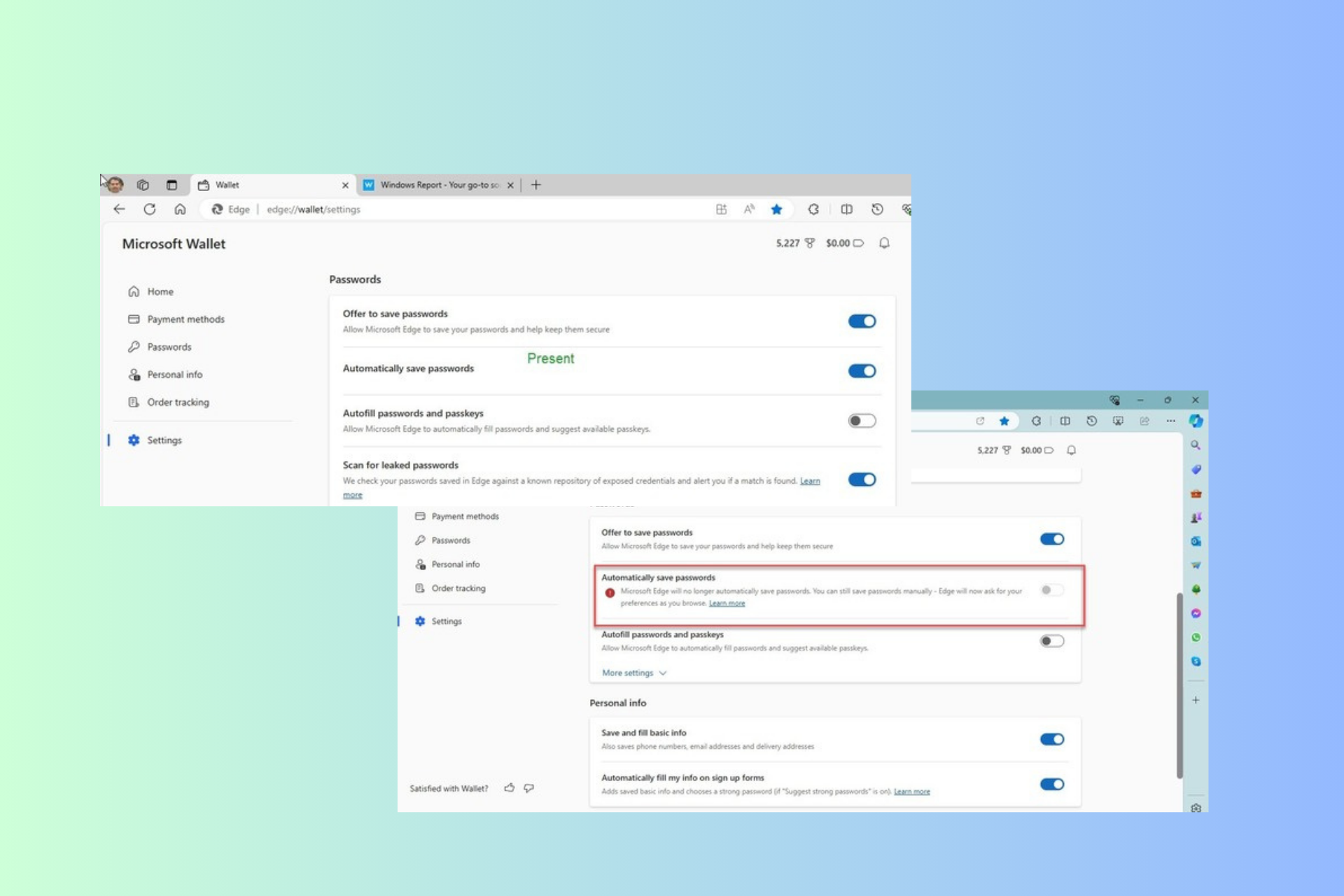Windows 8.1 KB3197875 brings a long list of fixes and improvements
4 min. read
Published on
Read our disclosure page to find out how can you help Windows Report sustain the editorial team Read more

Microsoft is working at full thrust to polish the upcoming Monthly Rollup Update for Windows 8.1. The company recently pushed Windows 8.1 KB3197875 to users with early access, allowing them to test the content of the update before it gets released to the general public.
Update KB3197875 brings a long list of fixes and improvements that will definitely make Windows 8.1 more stable and reliable. The update offers 23 quality improvements that range from boot partition improvements to Remote Desktop fixes. At the same time, KB3197875 also includes improvements and fixes that were a part of Monthly Rollup KB3197874 released on November 8.
The update is also available for Windows Server 2012 R2.
Update KB3197875 fixes and improvements:
- “Addressed issue where updating the driver for the onboard RAID controller to a version higher than the RTM version causes all impacted servers to stop responding indefinitely.
- Addressed issue where the Internet Information Services (IIS) W3C logging service stops working when using custom logging fields to track user requests.
- Addressed issue where a cluster node that has lost network connectivity doesn’t fail over properly to the partner node that has full network connectivity. […]
- Addressed issue with an error that occurs when retiring and removing a physical disk using the Cloud Platform Suite (CPS) field-replaceable unit (FRU) procedure. After replacing the disk, it fails.
- Improved support for networks by adding new entries to the Access Point Name (APN) database.
- Addressed issue where a Network File System (NFS) server crashes when a user tries to back up data files to it. The error code is “STOP 0x4E”.
- Addressed issue where, after enabling the Cluster Service’s IgnorePersistentStateOnStartup switch for troubleshooting, you must restart the entire cluster to exit diagnostic mode when troubleshooting is done.
- Addressed issue where event logging fails to log the IP addresses of incoming Remote Desktop Protocol calls.
- Addressed issue with a consistent five-second delay during network data transfer to a Microsoft iSCSI Initiator Server.
- Addressed issue where the dynamic DNS registration process often causes failures and queue buildup when a reverse lookup zone is not present.
- Made updates to support the deprecation of SHA1 server authentication certificates where applications can opt in to the new behavior.
- Addressed an issue with the domain controller running out of memory during security descriptor propagation to a very large number of Active Directory objects.
- Addressed issue where a disk that’s configured with the Resilient File System (ReFS) stops working when it’s under heavy loads and is using software that makes calls to a Direct Access Storage Device (DASD) I/O. […]
- Addressed issue where some cluster nodes become unresponsive when the Wmiprvse service fails.
- Updated Belarus’ ISO 4217 code from BYN to BYR.
- Addressed issue with the boot partition appearing in File Explorer after installing MS16-100.
- Addressed issue with lost access to a shared Resilient File System (ReFS) volume folder when a write operation occurs and its parent folder is being renamed concurrently. The file server (ReFS) becomes unavailable.
- Addressed issue with input/output errors in the Microsoft Cloud Platform Suite (CPS) when a Serial Attached SCSI (SAS) enclosure management module (EMM) malfunctions.
- Added a feature for Windows virtual machines called In Machine Configuration (IMC). IMC will reduce boot time by eliminating the reboot performed during specialization.
- Improved server’s first boot time.
- Addressed issue so that the In Machine Configuration (IMC) sequence number is reset after sysprep to support policy-based error handling for IMC.
- Addressed issue where timeout failures occur when using Microsoft Multipath I/O (MPIO.SYS) and a path temporarily fails.
- Addressed issue where the Remote Desktop Service gets into a deadlock during virtual channel management and can’t accept new connections. This leads to a black screen or brief window before the client disconnects.”
RELATED STORIES YOU NEED TO CHECK OUT:








